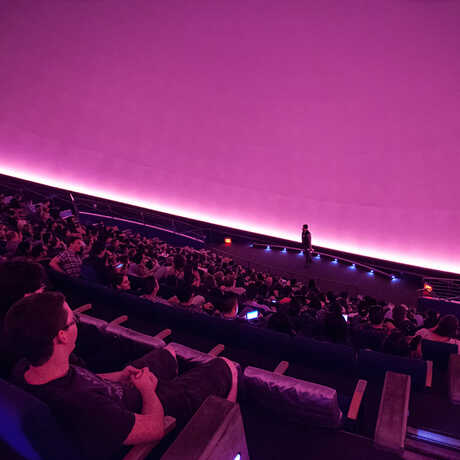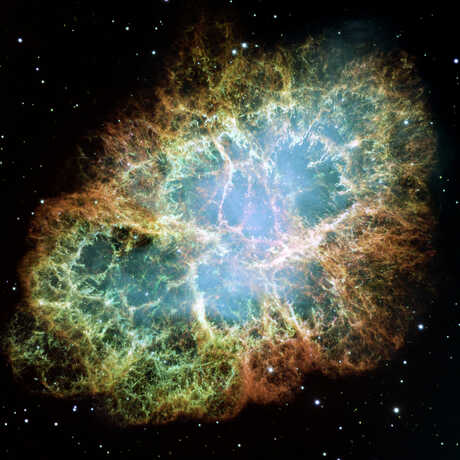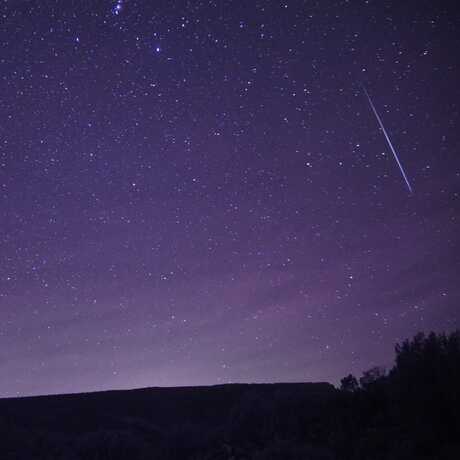Landscapes of the Solar System is a live, 15-minute, family-friendly program hosted by Morrison Planetarium presenters in Hohfeld Hall. Showtimes are Monday-Friday at 1:40 pm, and Saturday-Sunday at 11:40 am, 1:40 pm, and 3:40 pm.
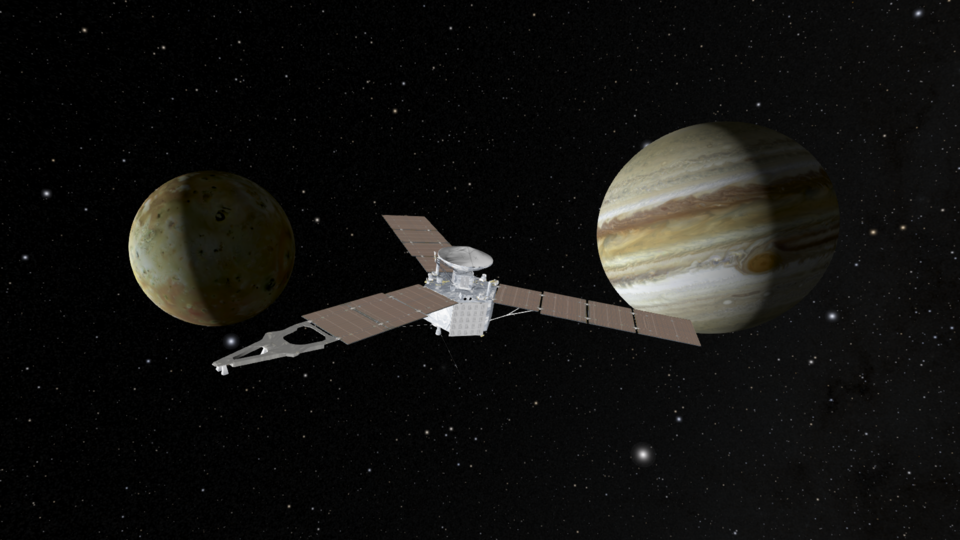
Artist's rendering of the Juno spacecraft with the planet Jupiter to the right and its moon Io to the left.
Landscapes aren’t limited to Earth! Investigate the natural wonders of our home planet and the other worlds in our solar system by exploring the links and resources below.
Mountains on Earth
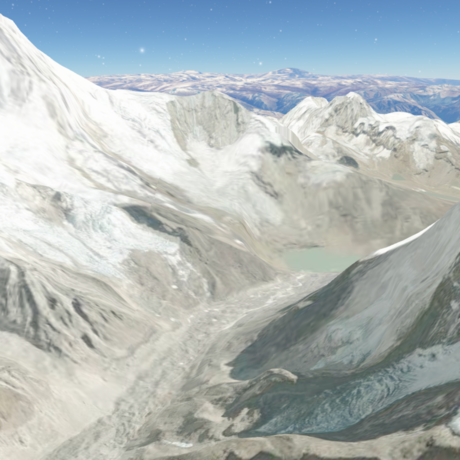
In this show we trek to some of the tallest mountains on Earth. Learn more about how the Himalayas and other mountain ranges form from tectonic activity.
Missions to the Moon
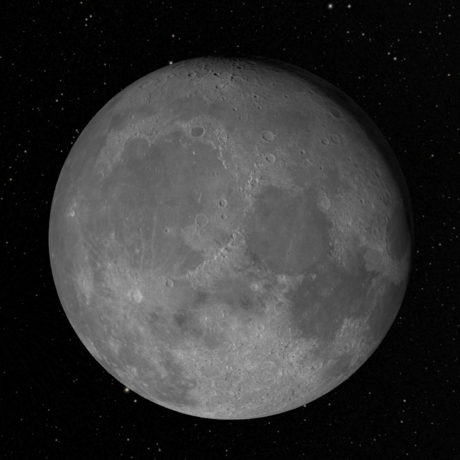
The Apollo missions taught us about all sorts of land features on the Moon. Learn more about the Apollo 15 mission, which visited the Apennine mountain range, and NASA’s upcoming Artemis mission, which will send people back to the Moon—including the first woman to ever visit it!
Explore the Grand Canyon
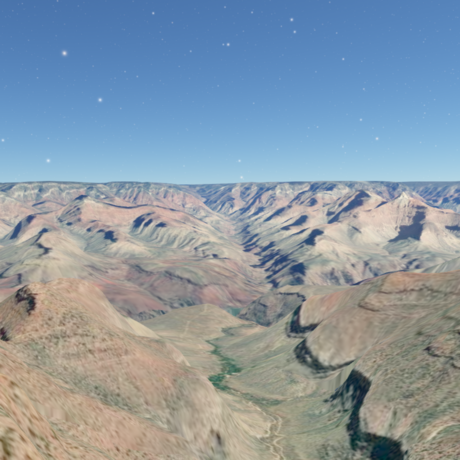
Did you know the Grand Canyon is larger than the state of Rhode Island? Learn more via the links below.
Mars' Mariner Valley
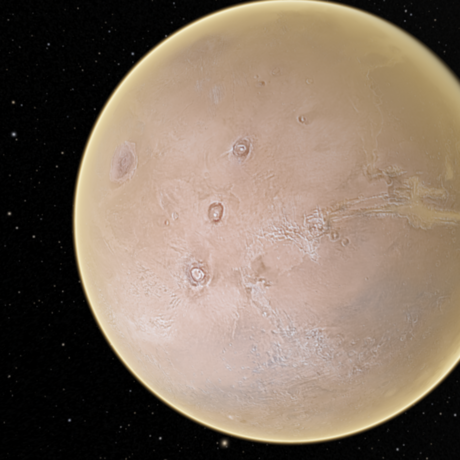
The Grand Canyon is big, but Mars' Valles Marineris is the largest canyon in the entire Solar System! Learn more about this epic landform, as well as the Mars Reconnaissance Orbiter (MRO), which is helping us study it.
Explore Hawai'i
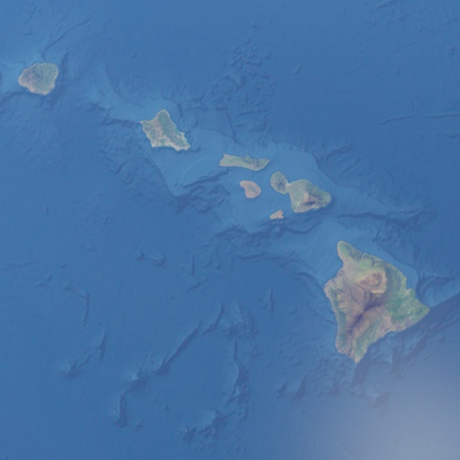
The Hawaiian Islands are a volcanic archipelago, home to active volcanoes and dramatic landscapes.
Info on Io
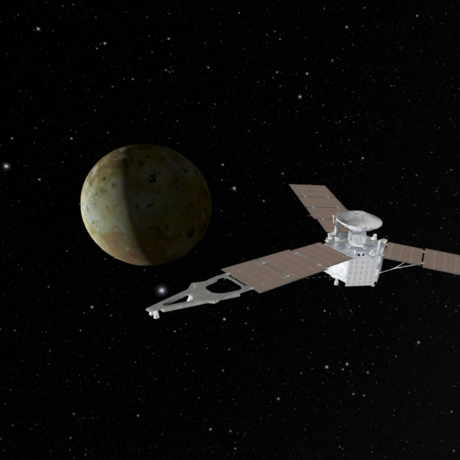
Io, one of Jupiter's moons, is the most volcanically active object in the entire Solar System. Learn more about Io and its many volcanoes below.
More on glaciers
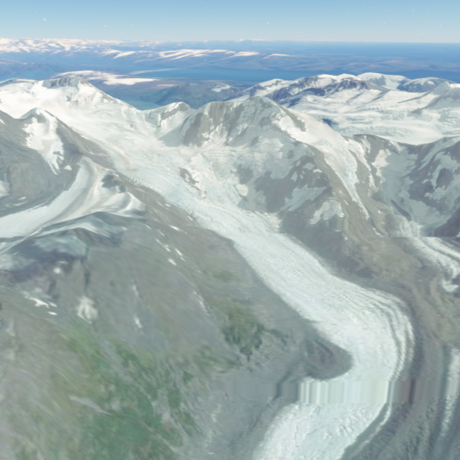
Enormous, incredibly slow-moving bodies of ice, glaciers define polar and high-altitude regions of Earth. Explore Alaska's glaciers below.
Explore Pluto
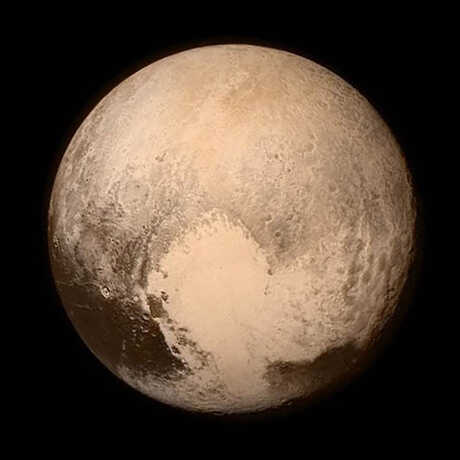
Despite being reclassified to a dwarf planet, Pluto is still a beloved—and fascinating—part of the Solar System. See what we've discovered below.
Explore more of the Universe
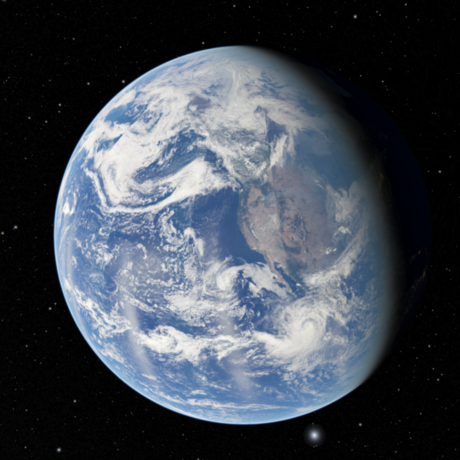
You can fly around with the same software we use in the planetarium at home using the free, open-source planetarium software OpenSpace!
Browse our collection of educational resources, activities, and opportunities for educators and students.
